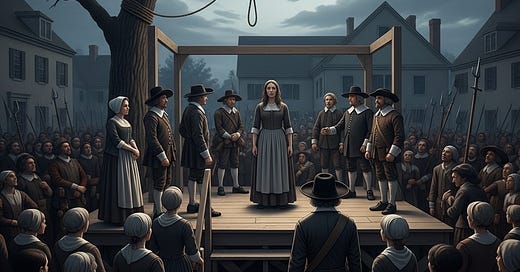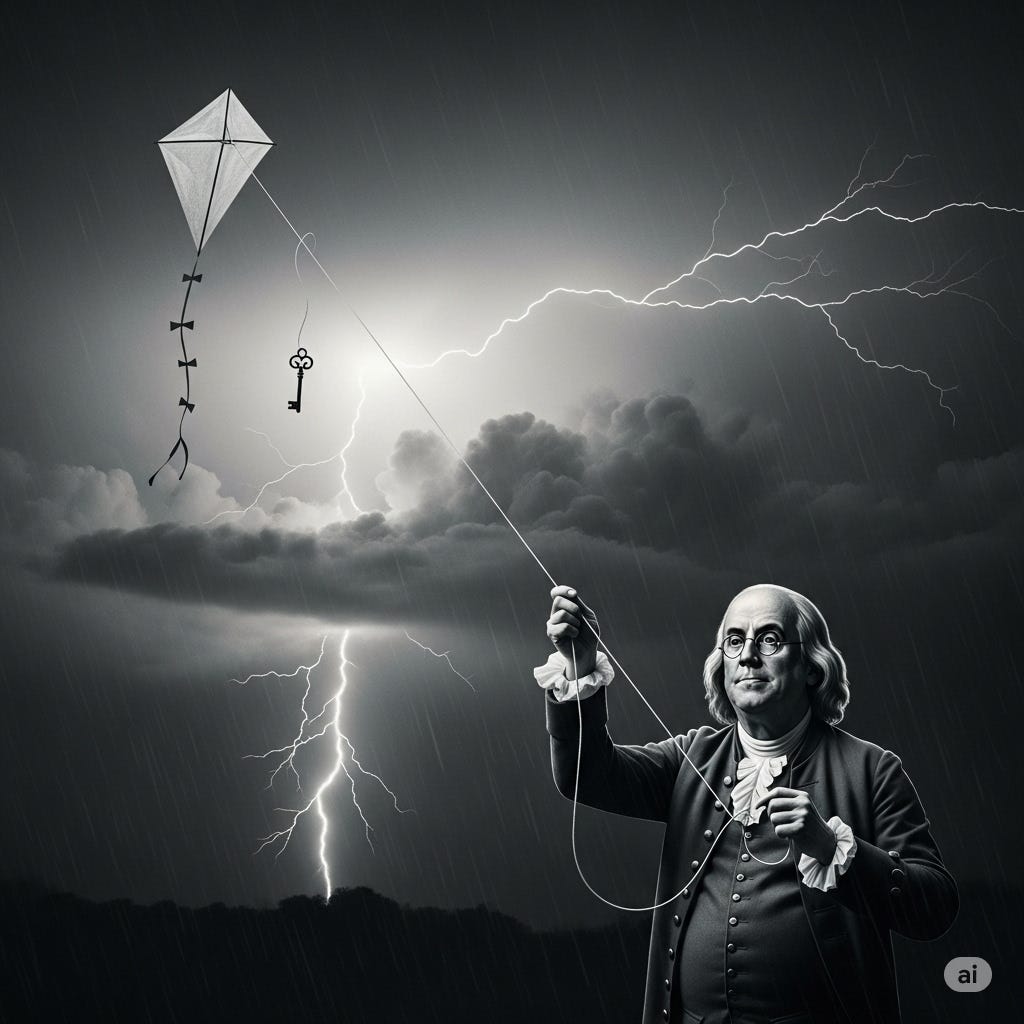“Those who cannot remember the past are condemned to repeat it.” — Spanish-American philosopher George Santayana, 1905
1692 — First Salem Witch Execution
image generated using Google Gemini
On this date, in Salem, Massachusetts, Bridget Bishop (1632-1692) was hanged after being found guilty of witchery.
Starting in February of that year (1692), illnesses suffered by young village residents began to be blamed on witchcraft, and over the next several months, 150 people of both genders, including one person as young as four years old, was incriminated of being involved with occultism.
At the trials where these charges were adjudicated, those accused were judged mainly on the reaction of others (not those accused) — if they began to act strangely (having “fits” or hallucinating), then it must be because the one on trial was exuding satanic “vibes,” was the thinking.
Only after twenty people had been executed for these dubious charges (19 were lynched and one was crushed with large rocks [and five died indirectly, in jail, due to the harsh conditions there and perhaps with extreme stress as a contributing factor to their early demise]) did cooler heads prevail when the Governor of Massachusetts, William Phipps, put a stop to the travesty of justice.
Questions: What conditions in the village of Salem and/or the Massachusetts Bay Colony made such a series of events possible? Was there any credence to the charges? Are there any modern-day parallels to the Salem Witch Trials? Have you seen the movie The Crucible?
1752 — Benjamin Franklin Flies a Kite
image generated using Google Gemini
In 1752, three score of years after the witch hunts in Massachusetts — possibly on this very date, but sometime in June, at any rate — Benjamin Franklin (1706-1790) caught lightning in a bottle.
Franklin was not just being silly when he ventured forth to deliberately cause a key attached to his kite to be struck by lightning — he was conducting a scientific experiment in an attempt to prove a connection between lightning and electricity. He was successful: the lightning strike stored static electricity in the key which, when touched, produced a spark.
This led to Franklin inventing the lightning rod to conduct electricity away from buildings and ships when they were struck by lightning.
Questions: Was Franklin ever President? Where was he born? Why did he end up in Philadelphia? What pivotal and historically significant documents did Franklin sign? Which writings were Franklin known for? What are some of his famous sayings? What did he accomplish as a diplomat? Have you ever been to a Ben Franklin store?






